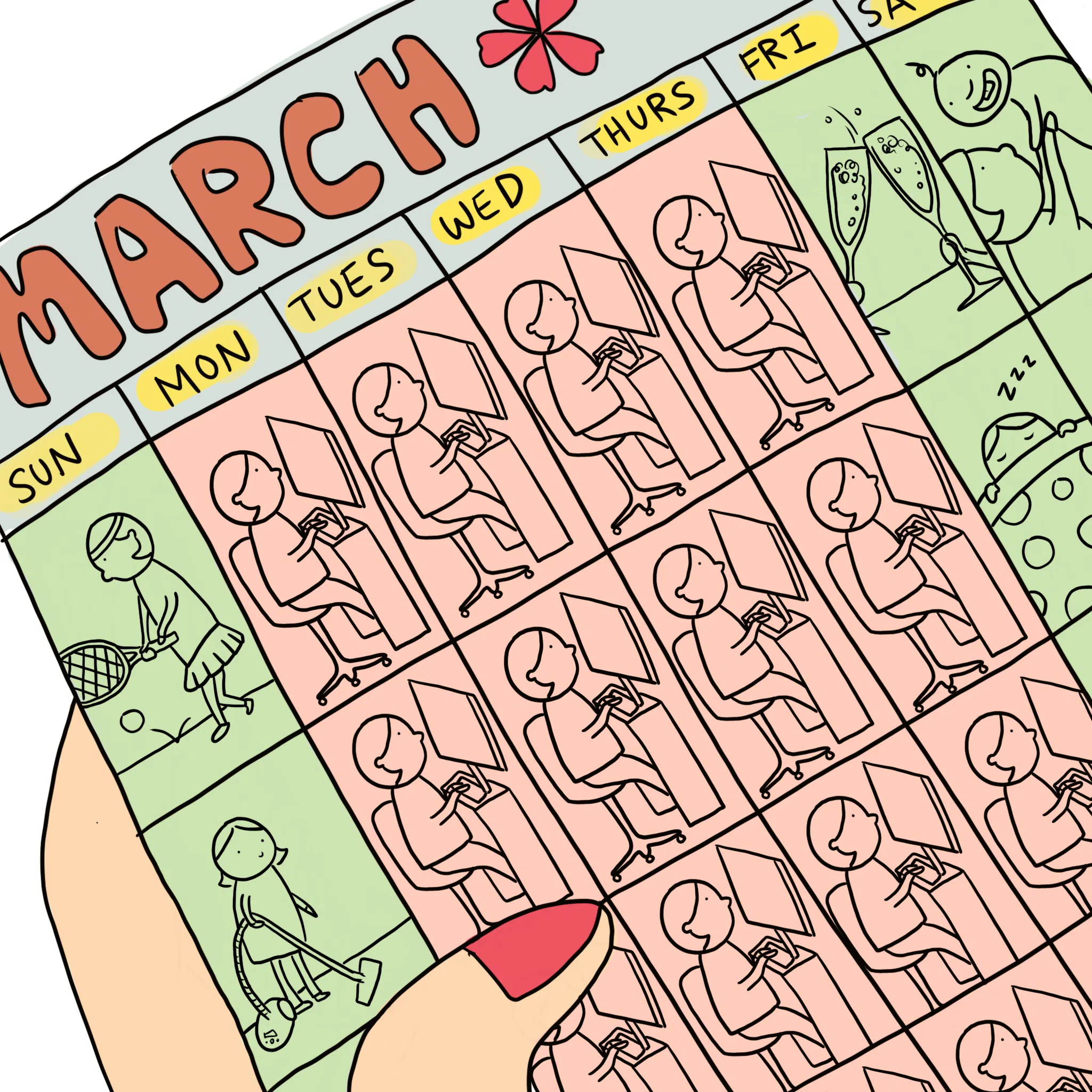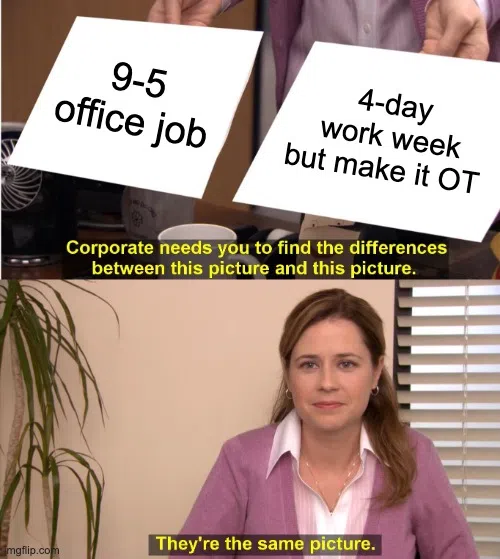😁 Can we have a four-day work week, please?

- Find out more and sign up for Thrive at bt.sg/thrive
🧚 Happily ever after?

We’ve debated the issue time and again. The pros of higher employee retention and improved mental health and well-being, to name a few, are great and convincing, but the cons often take us back to practicalities like extra costs and a possible compromise on the quality of output. Fundamentally, are companies in Singapore ready for this?
Considering Singapore’s reputation of being more risk-averse and conservative, the chances are low. Clement Ng, 24, a final-year engineering student at the National University of Singapore (NUS), is not holding his breath for a four-day work week when he steps into the workforce come May this year.
“Realistically speaking, many people (in Singapore) would likely ignore the theoretical four-day work week, and continue with the same routine of working all five weekdays (that they’re) already accustomed to,” says Ng. He tells Thrive that many of his friends in the workforce frequently work overtime, even with a five-day work week.
According to Lawrence Loh, professor and director of the Centre for Governance and Sustainability (CGS) at NUS Business School, a four-day work week could backfire. This is simply because the same amount of work will invariably be squeezed into a shorter period of time, creating more pressure on workers.
“With fewer (official) working days, this could lead to employees facing more restrictions with less time to work around for scheduling meetings, for example, and eventually meeting with more difficulties accomplishing tasks,” Prof Loh adds. “This could lead to more anxieties among workers, instead of effectively alleviating stress.”
After all, no one wants to spend their extra day of rest worrying about how to complete all the work they have. 😓
Navigate Asia in
a new global order
Get the insights delivered to your inbox.

In addition, it might be very challenging for some industries – such as healthcare, public transport and none other than *ahem* the media – to operate on a four-day work week basis, in light of the need for daily services that may require workers to be physically present. Overhead costs will likely be driven up by cutting one work day, making such an arrangement unrealistic.
🤝 Long-term workplace flexibility
But not all is lost. In fact, while we may not see the widespread implementation of an official four-day work week across all companies in Singapore, that doesn’t mean workplaces are doomed to rigid practices with no progress.
“It is not really about the number of (work) days in the week. I think what’s more important is creating flexibility,” Prof Loh says, referring to structures currently in place at various workplaces.
While companies ultimately have the final say, employees can make the first move by raising the issue of workplace flexibility with their managers in a way that focuses on positive outcomes for both sides. If you have a proven track record and have done your research, having a chat with your manager on how you can work towards more flexibility at work is not the career killer that you might think it is.
Some questions 🙋 you could pose to your manager include:
- What are my key performance indicators (KPIs) exactly? Can they be determined by “tasks” rather than “time” clocked in and out of the office?
- What kinds of leave are available at this organisation? Is there a flexi-leave system in place?
- Am I able to work from home on certain days? And how often? (Not all organisations have hybrid work arrangements, so you might have to raise this issue with your manager if you are certain you can be just as productive while away from the office.)
Of course, a lot of this boils down to how receptive your manager or employer is, so do your homework and read the room before you ask.
Though we have yet to see a culture of a four-day work week in Singapore, it is clear that things are slowly changing. A prime example of this is the prevalence of more hybrid work arrangements than ever before on the back of the Covid-19 pandemic. 👩🏻💻
And while a four-day work week might remain a dream (for now 🌚), who says workplaces can’t be flexible? Employees can do their part to advocate for workplace flexibility, framing it as a win-win situation for both employers and staff. But till then…TGIF? 🙃

TL;DR:
- We love the idea of a four-day work week, but…
- …employers here might feel iffy with many considerations at hand 😕
- Various groups of workers will need to be catered for, in addition to potential higher costs 💸
- For outcome-based work, a four-day work week could benefit both employers and staff
- Employees can ask for workplace flexibility, provided that they have done their research and have a proven track record 🤗
Copyright SPH Media. All rights reserved.